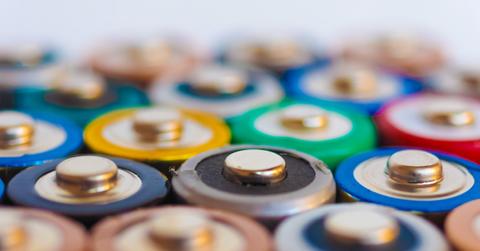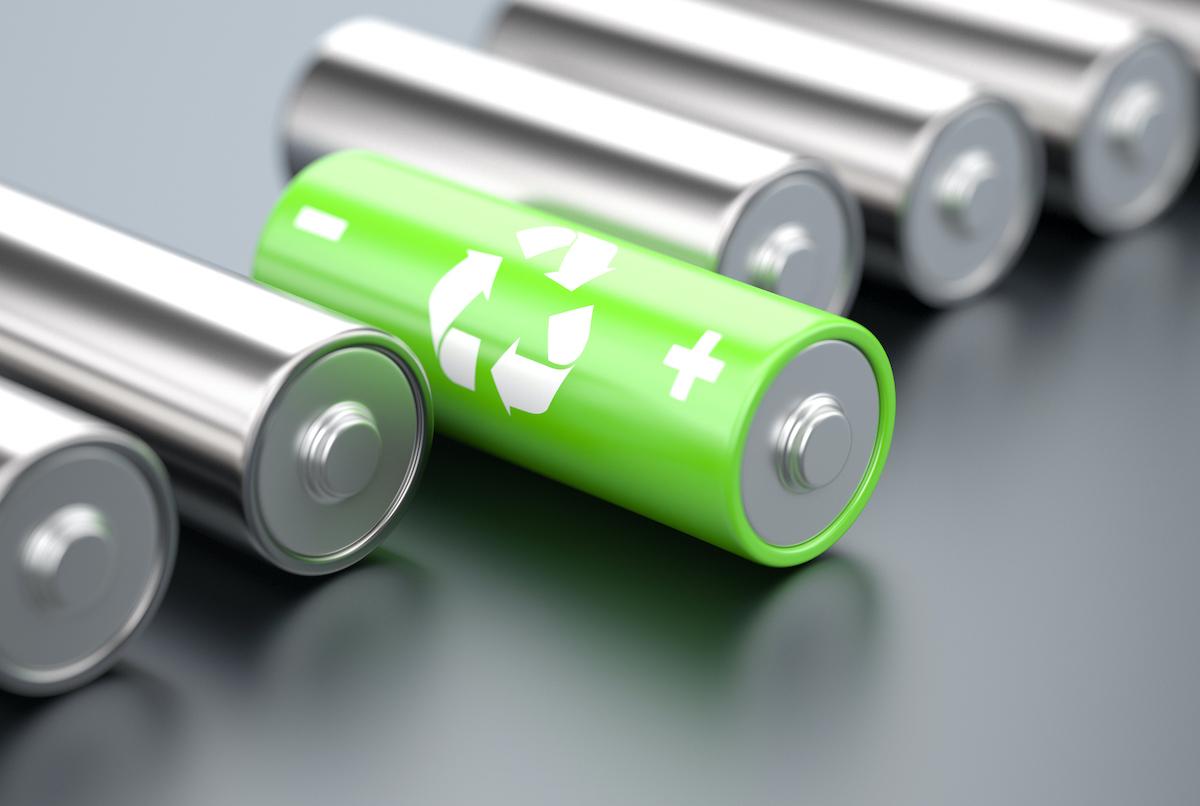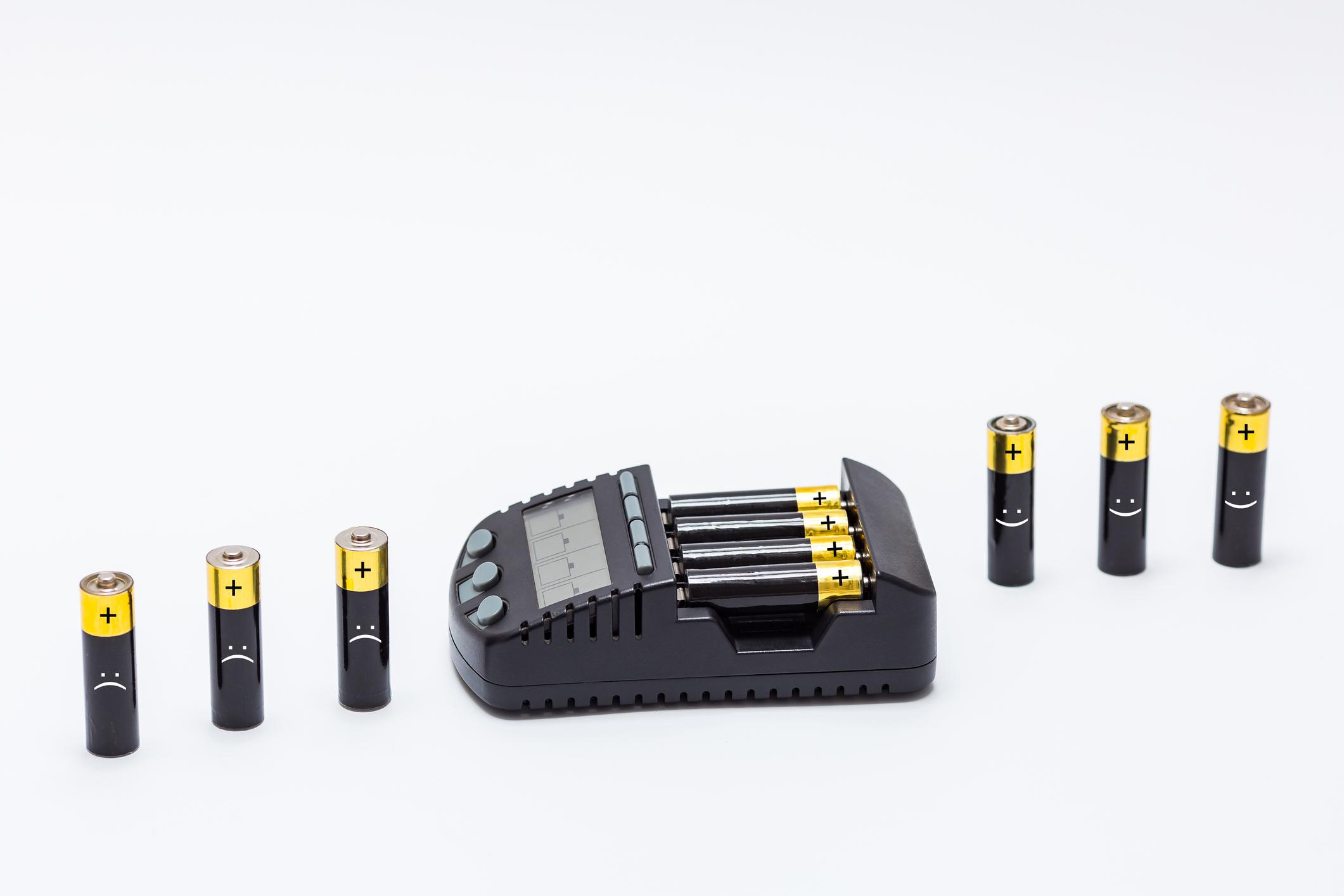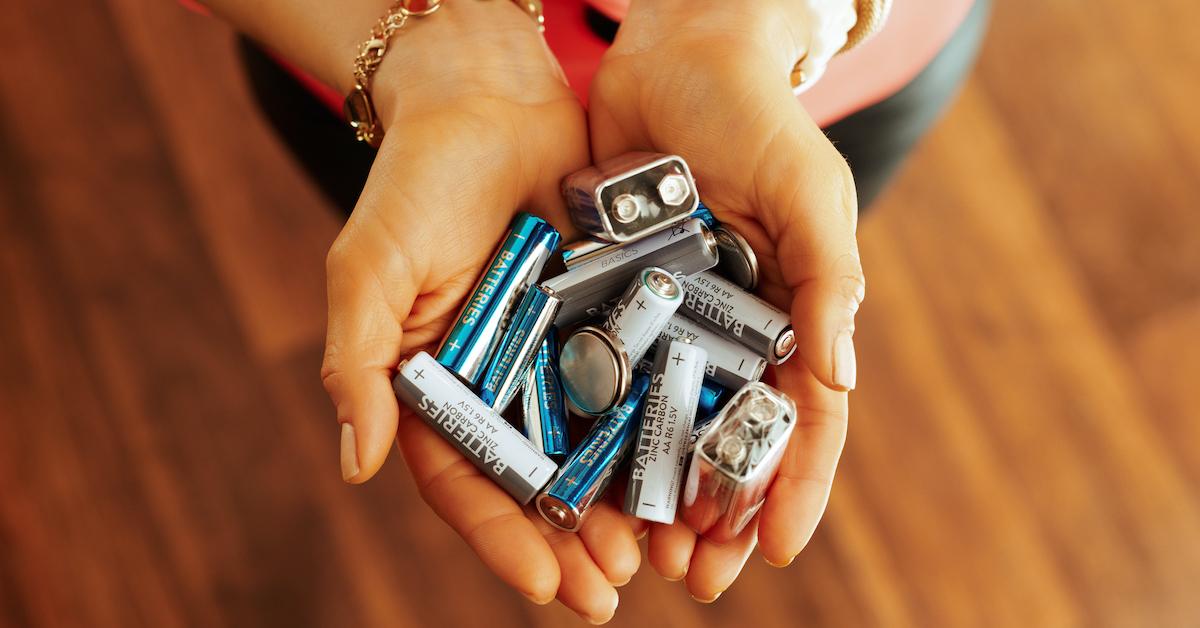Why Can't You Throw Away Batteries? One Reason: Fires
Batteries should never be thrown away in the garbage.
Updated Jan. 5 2021, 10:03 a.m. ET

In some states, it's actually illegal to throw away single-use alkaline batteries — but whether or not it's legal where you live, it's a good idea to avoid the practice, for several reasons.
Ever wonder why you can't throw away batteries? Keep reading to find out the reason why it's inadvisable, for a guide on how to recycle batteries, and for our best recommendation to reduce your battery waste.
Can I throw away batteries?

Physically, you can throw away batteries, but you really shouldn't. As mentioned above, it's even illegal in some states (such as California) to throw away batteries, according to Earth911.
But even though you shouldn't put batteries in the trash, there are plenty of ways to get rid of dead batteries properly.
Why can't you throw batteries out?

The biggest risk batteries pose when thrown in the trash is that they can actually overheat, start a fire, and even explode. Whether a fire or explosion happens in your trash can, the garbage truck, or the landfill, it puts people in danger, and it's a situation that could easily be avoided if everyone stopped putting batteries in the trash.
According to a new report shared by The Guardian, between March 2019 and March 2020, discarded lithium-ion batteries caused at least 250 fires at waste facilities across the U.K., accounting for more than a third of all the facilities' fires.
“Fires caused by carelessly discarded batteries endanger lives, cause millions of pounds of damage and disrupt waste services,” said Jacob Hayler, executive director of the Environmental Services Association, as per The Guardian. “We urge consumers to please recycle batteries responsibly.”
How do batteries start fires?
There are a few ways — as explained by San Jose Recycles, by the time a battery winds up at a waste facility or landfill, it's likely that it will have been smushed or even punctured, which can impair the separation between the cathode and anode, which can cause the battery to catch fire or explode.
If a discarded battery is touching another piece of metal (such as another discarded battery, a penny, or tin foil), that can also ignite a fire; and if the discarded battery is sitting amongst dry materials like paper, they will act as kindling and help spread the fire.
Lithium-ion batteries are particularly flammable, as they contain a flammable electrolyte, according to the DWSWA. Lithium-ion batteries are the kinds of batteries that come in cell phones, tablets, laptops, external chargers. That said, regular old alkaline batteries can start fires as well — these are AA and AAA batteries that you probably use for the TV remote, flashlight, and toys.
Batteries can also leach chemicals.
Batteries contain toxic chemicals (including cadmium, lead, lithium, and sulfuric acid). If a battery gets punctured, crushed, or otherwise damaged, it can cause these chemicals to leach out of them — and, as explained by Consumer Reports, there is evidence that batteries can leach these toxic chemicals into the environment. The chemicals can then pollute the groundwater, various ecosystems, and disrupt the natural food chain.
Can you throw away car batteries?
Car batteries cannot go in the regular trash, as they post the same risks as alkaline batteries and lithium-ion batteries.
“Whether it’s your standard alkaline AA battery, a rechargeable cell phone battery, or the battery from your car, you should treat it with care by using safe storage and disposal methods,” wrote Consumer Reports’ chief scientific officer James Dickerson, Ph.D.
Here's how to recycle batteries.

Sufficiently turned off from tossing batteries in your trash can ever again? Yep, we thought so. Luckily, it's pretty easy to recycle batteries of all kinds — batteries even happen to be the No. 1 most-recycled item in the U.S., with a 99 percent recycling rate, according to the EPA.
The easiest way to recycle batteries is by dropping them off at a chain store that accepts battery recycling, such as Best Buy, Staples, Home Depot, Lowe's, RadioShack, or Office Depot.
Most of the above stores only accept rechargeable batteries, but fortunately, RadioShack will take non-rechargeable alkaline batteries, as well.
The organization Call2Recycle manages the battery recycling at most of the above stores, and you can directly search battery drop-off locations on Call2Recycle's website.
If your batteries are not rechargeable, they are generally more difficult to recycle, so make sure to check on that with Call2Recycle (or with the store directly) before heading over. Click here for our full guide to finding battery recycling.
Rechargeable batteries can help reduce waste.
To help reduce your battery waste (and save you money!) consider investing in rechargeable batteries and a charger. Unfortunately, rechargeable batteries do not last forever — most rechargeable batteries only last for two to seven years, according to zBattery, but they're still a more eco-friendly and economical option.